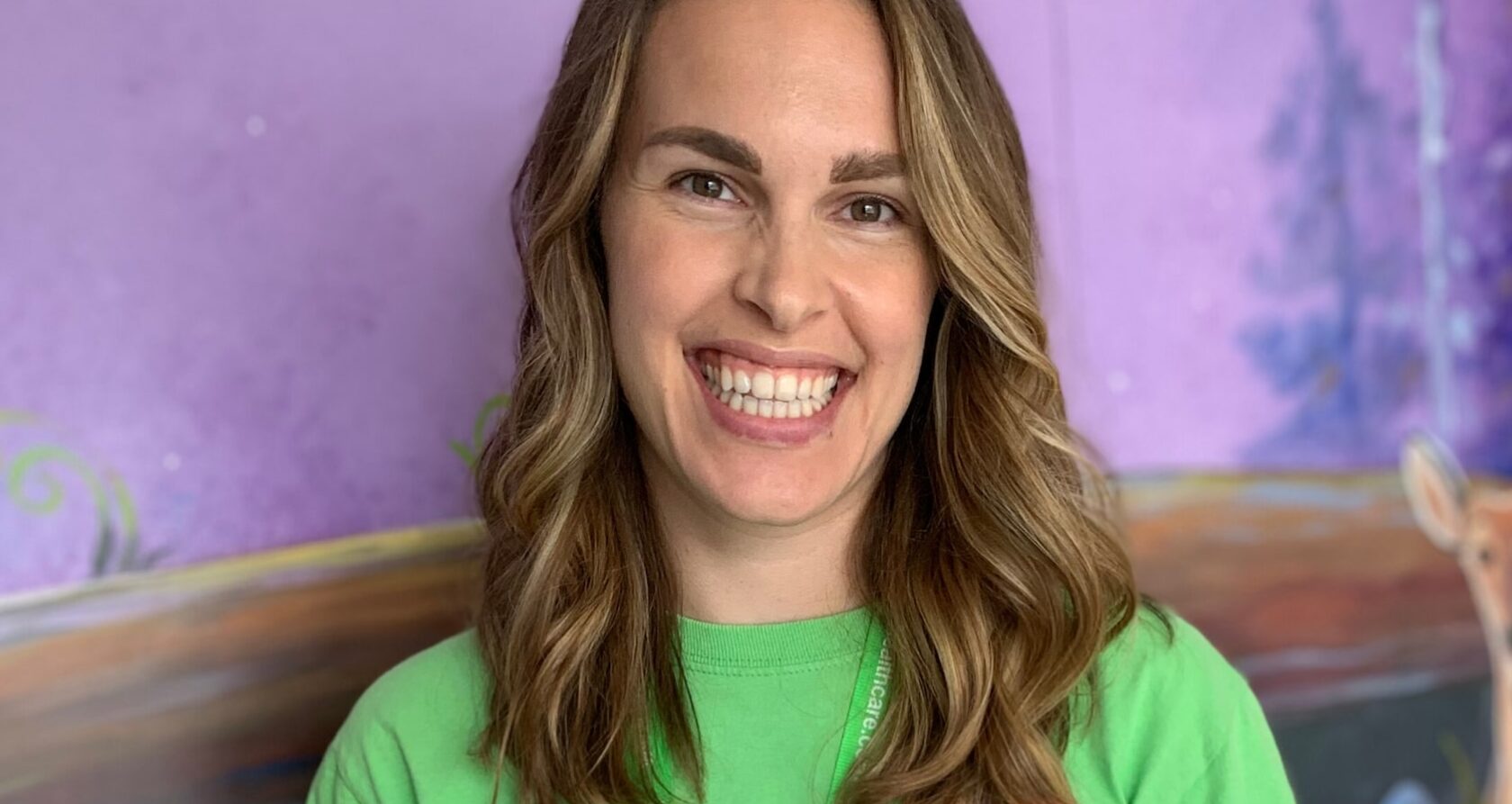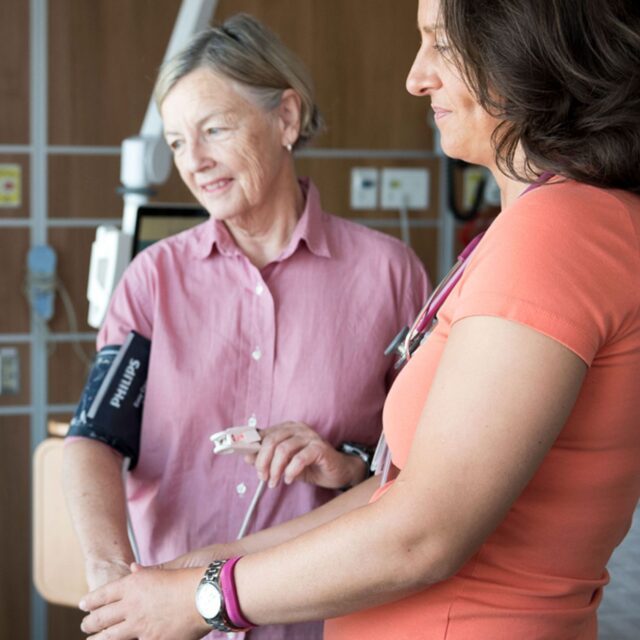Supporting Children’s Mental Health During COVID-19
- Share This Story

Whether it’s helping children cope during a procedure, preparing them for a surgery or introducing lots of play during their hospital stay, Jaime Neefs, Child Life Specialist at Oakville Trafalgar Memorial Hospital supports pediatric patients wherever they may be in the hospital.
Now she is also helping parents and caregivers who find the pandemic is affecting their children’s mental health. “These changes in feelings and moods are natural,” says Neefs. “But before addressing their children’s anxiety, I think it’s important for parents and caregivers to start with themselves and do a quick check-in. During these times, it is important to focus on the details that are most relevant and necessary for kids to know. Sometimes, this starts with asking your child what they want to know and providing them with relevant and developmentally-appropriate information.”
Children often look to their parents and caregivers for answers, especially during unusual situations. Pausing before talking to your children about COVID-19 can help with any feelings of overwhelm and worry.
“Everyone is handling these times very differently, and people have different concerns and worries – even children and teens. Finding out exactly what kids are worried about is really important,” she says. “I think it’s essential to validate your child’s concerns as you move into understanding how your child is feeling.”
Making playful games out of healthy habits and daily routines, such as hand washing, can help parents and caregivers focus on good hygiene practices with their child. Turning these habits in to fun, everyday activities can be a small way to introduce play into your child’s day.
“I don’t think we play enough. Play is how children process and understand what they’re feeling, which is especially important during these times,” says Neefs. “Play in any form is really beneficial. It allows children to have a sense of enjoyment while also working through what is happening around them.”
Play brings feelings of happiness and joy, and allows the child or teen to express their feelings without having to say anything verbally.
“Getting outside, if possible, is really beneficial. If there’s anything we know about children, it’s how they benefit from routine. At a time like this, although everything has changed, implementing a routine and keeping it flexible can be really beneficial.”
Being outside and getting fresh air can help keep a clear mind. Nature can help children and teens tune into their emotions through play or relaxation.
“Another way parents and caregivers can support their children or teen’s mental health is by encouraging them to draw, scribble or paint. Kids will illustrate how they are feeling on the inside. Drawing, scribbling or painting can help them release any worrisome feelings, or at least help the parents or caregivers be aware of what their child or teen might be thinking and feeling.”
“Kids can also paint rocks and leave them outside entrances of hospitals or outside their homes,” says Neefs. She has seen children painting rocks with positive and encouraging messages on them for frontline workers. “This can be a creative way to spread positive messages during this time.”
Neefs also suggests that creating a “worry stone” is a great activity. Children and teens can draw or paint motivational or positive messages on a really small stone and carry them in their pockets throughout the day as a positive reminder if they are feeling down. Teens can take up more complex forms of art such as pottery, collaging and knitting.
Our Child Life Specialist also believes in the importance of gratitude during this time. Implementing gratitude practices into a routine can have an impact on positivity and wellbeing. Expressing gratitude at dinnertime, whether it is something you’re grateful for that happened during the day, or expressing gratitude for a family member, can have lasting effects on overall mood and outlook.
“This pandemic is affecting everybody in some kind of way, so I think it is important for parents to check in with themselves. Children and teens pick up on so much of their parents and caregivers mood, or if they are feeling anxious themselves.”
To learn more, you can watch Neefs’ short, educational videos on the Halton Healthcare Facebook page, and follow her “Child Life Tip Tuesday” on her Twitter page.
Resources
For more information below is a list of resources parents and caregivers can reference to help support their child or teen’s mental health during COVID-19.
- Creative Ways to Support your Mental Health (Child & Teen)
- 12 Easy and Fun Mental Health Practices to Try With Your Children at Home (curriculum-based)
- How to Support Your Child’s Mental Health During the COVID-19 Pandemic (questions and resources)
- COVID-19 Youth Mental Resource Hub
- 12 Instant Stress Busters
- COVID-19 Learning Hub by About Kids Health
- The CARD System by About Kids Health
- COVID-19 Fact Sheet by The Ministry of Health
- Mental Health and the Pandemic
- Talking to Children About COVID-19














